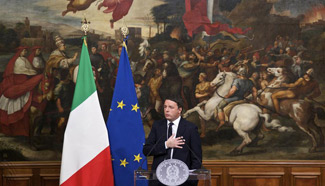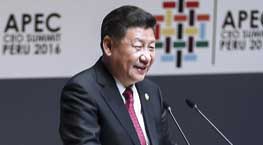TEHRAN, Dec. 5 (Xinhua) -- Iran's nuclear chief Ali Akbar Salehi said Sunday that the U.S. government must prevent the implementation of a recent Senate vote to extend the Iran Sanctions Act (ISA) and remain committed to its obligations under the international nuclear agreement, Tehran Times daily reported Monday.
Salehi expressed concerns over the extension of the ISA for 10 years, saying Iran has the right to respond properly if the bill is implemented.
His remarks came in a meeting with the U.S. Secretary of Energy Ernest Moniz in the Austrian capital of Vienna on Sunday.
For his part, Moniz said that President Barack Obama will be informed of Iran's concerns, adding that the U.S. administration will be committed to the Iran nuclear deal.
The vote by the U.S. House of Representatives to extend the ISA was endorsed by the Senate on Thursday. It still has to be signed by the U.S. president to become a law.
The ISA was first adopted in 1996 to sanction Iran over its controversial nuclear program.
Iran's President Hassan Rouhani said Sunday that the recent U.S. vote is a clear violation of an international deal on Iran's nuclear issue, the official IRNA news agency reported.
Rouhani called the vote "a blatant infringement" of the nuclear deal, saying that the U.S. president should not sign it and "should use his authority to block it from being enforced."
Iran and six world major countries, namely the United States, Britain, China, Russia, France and Germany, reached an agreement on the Iranian nuclear issue in July 2015 which puts Iran on the path of sanctions relief but more strict limits on its nuclear program.
The deal sets limits on Iran's nuclear activities and allows regular inspections of the facilities inside the Islamic republic.
In return, the U.S. and the European Union will suspend nuclear-related sanctions against Iran.
Some members of the U.S. Congress, however, had expressed deep concerns over the deal, warning that Tehran may evade inspections and use the money from sanction relief to destabilize the region.










